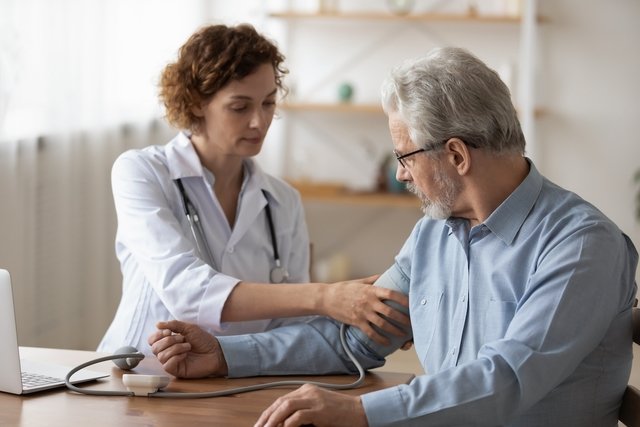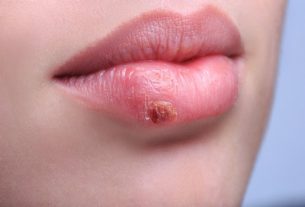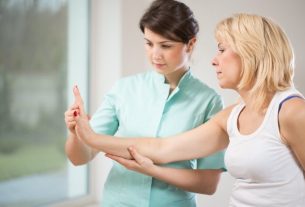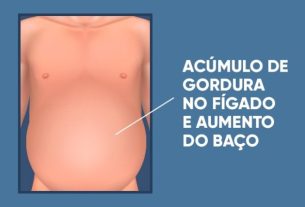High blood pressure in the elderly is when blood pressure values, measured in the doctor’s office, are greater than 140×90 mmHg, and generally do not cause symptoms. However, even without symptoms, high blood pressure is dangerous as it greatly increases the risk of complications, such as heart attack and stroke.
It is common for blood pressure to increase with age, due to the aging of blood vessels, which is why, in the elderly, hypertension should always be treated with changes in lifestyle habits and medications that should be prescribed by a doctor.
Read too: High blood pressure: what it is, symptoms, causes, remedies (and more)
Therefore, it is important that elderly people have regular consultations with a cardiologist or geriatrician, in order to start treating high blood pressure, and thus avoid complications that can put their lives at risk.

Symptoms of high blood pressure in the elderly
The main symptoms of high blood pressure in the elderly are:
- Dizziness;
- Headache or neck pain;
- Weakness;
- Ringing in the ear;
- Chest pain.
- Nausea and vomiting;
- Blurry vision;
- Tingling in parts of the body.
These symptoms usually appear when the pressure is very high, as high blood pressure in the elderly is usually silent, causing no symptoms.
If you experience symptoms of high blood pressure, you should go to the emergency room immediately so that it can be treated as quickly as possible.
Read too: 12 main symptoms of high blood pressure
How to identify hypertension in the elderly
The diagnosis of high blood pressure in the elderly is made by a geriatrician or cardiologist, by measuring blood pressure in the office on different days, being considered high when it reaches values equal to or greater than 140 x 90 mmHg.
If you want to make an appointment, you can find the doctor closest to you using the tool below:
Taking care of your health has never been easier!
In cases of doubt as to whether blood pressure is really high, the doctor can also request home blood pressure monitoring (MRPA), where several weekly measurements are taken at home, pharmacy or health center.
Another exam is ABPM, in which ambulatory blood pressure monitoring is carried out by placing a device attached to the body for 24 hours, taking several pressure measurements throughout the day. See how the MAPA exam is done.
See how to measure blood pressure correctly at home:
Online blood pressure calculator
To find out if your blood pressure is high, please enter the data into our calculator:
This calculator is only a guidance tool and should not be used as a diagnosis or replace a consultation with a cardiologist or geriatrician.
Classification of blood pressure in the elderly
According to the measurement taken in the doctor’s office, blood pressure in the elderly is classified into:
The higher the blood pressure, the greater the risk of serious health complications. People with prehypertension may be able to improve their blood pressure levels with lifestyle changes, while people with stage 2 and 3 hypertension usually need to use medications prescribed by their doctor.
Possible causes
Some factors that can cause high blood pressure in the elderly include:
- Age over 65 years old;
- Hypertension in the family;
- Overweight or obesity;
- Diabetes or high cholesterol and triglycerides;
- Consumption of alcoholic beverages and being a smoker.
Blood pressure tends to rise with aging, as the body undergoes some changes, such as stiffening and microlesions in the walls of blood vessels, in addition to changes in hormones during menopause and greater impairment in the function of important organs such as the heart and kidneys.
How the treatment is carried out
The treatment of high blood pressure in the elderly must be recommended by a geriatrician or cardiologist and involves changes in lifestyle, diet and/or medications.
1. Changes in lifestyle habits
The changes in lifestyle habits that must be made are:
- Avoid consuming alcoholic beverages;
- Quit smoking;
- Practice physical activity at least 3 times a week. See which are the best exercises for the elderly;
- Consume foods rich in potassium, magnesium, calcium and fiber;
- Perform some relaxation technique, such as yoga, meditation or pilates.
In addition, you should have regular medical appointments, every 3 months, to monitor your blood pressure and, if necessary, the doctor may recommend the use of medication.
2. Diet for hypertension
Diet is also very important for reducing blood pressure in the elderly, and it is recommended:
- Reduce salt and sugar consumption;
- Avoid foods rich in fat such as sausages, snacks and ready-to-eat foods;
- Eat a diet rich in vegetables, fruits, cereals and lean proteins.
In addition, you can include teas or natural juices in your diet, which help to complement treatment with medicines, such as garlic tea, eggplant juices with orange or beet juice with passion fruit, for example, which improve circulation and are diuretics. , helping to control pressure. Check out some recipes for natural remedies for high blood pressure.
Read too: Diet for hypertension: what to eat, what to avoid and menu
3. Medicines
Treatment with medication may be recommended by your doctor, especially in cases where your blood pressure is too high or has not been reduced enough with changes in lifestyle habits.
In this way, the doctor may recommend medications such as diuretics, calcium channel antagonists, angiotensin inhibitors and beta blockers, for example. See the main remedies for high blood pressure.
Treatment for hypertension in the elderly must be carried out very carefully and individually, especially for those who have other health problems such as heart disease, urinary incontinence and a tendency to feel dizzy when standing up.
Bibliography
- BRAZILIAN SOCIETY OF CARDIOLOGY. New high blood pressure guideline brings changes in diagnosis and treatment. Available at: <https://www.portal.cardiol.br/post/nova-diretriz-de-hipertens%C3%A3o-arterial-traz-mudan%C3%A7as-no-diagn%C3%B3stico-e- treatment>. Accessed on April 18, 2024
- ARQ. BRAS. CARDIOL. Brazilian Guidelines for Blood Pressure Measurements Inside and Outside the Office – 2023. 2024. Disponível em: <https://abccardiol.org/wp-content/uploads/articles_xml/0066-782X-abc-121-4-e20240113/0066-782X-abc-121-4-e20240113.x47225.pdf>. Acesso em 18 abr 2024
- BENETOS, A.; et al. Hypertension Management in Older and Frail Older Patients. Circulation Research. 124. 7; :1045–1060, 2019
- OLIVEROS, E.; et al. Hypertension in older adults: Assessment, management, and challenges. Clin Cardiol. 43. 2; 99–107, 2020
- WHELTON, P. K.; et al. 2017 ACC/AHA/AAPA/ABC/ACPM/AGS/APhA/ASH/ASPC/NMA/PCNA Guideline for the Prevention, Detection, Evaluation, and Management of High Blood Pressure in Adults: A Report of the American College of Cardiology/American Heart Association Task Force on Clinical Pra. J Am Coll Cardiol. 71. 19; e127-e248, 2018
- ESC – EUROPEAN SOCIETY OF CARDIOLOGY. Hypertension in older adults. 2023. Disponível em: <https://www.escardio.org/Councils/Council-for-Cardiology-Practice-(CCP)/Cardiopractice/hypertension-in-older-adults>. Acesso em 22 mai 2023
- NIH – NATIONAL INSTITUTE ON AGING. High Blood Pressure and Older Adults. 2022. Disponível em: <https://www.nia.nih.gov/health/high-blood-pressure-and-older-adults>. Acesso em 22 mai 2023
-
Re: “Blood pressure calculator”:
- FEITOSA, Audes Diogenes M.; BARROSO, Weimar KS; JUNIOR, Decio M. et al. Brazilian Guidelines for Blood Pressure Measurements Inside and Outside the Office – 2023. Arq. Bras. Cardiol. 4 ed. Vol 121; 2024

Sign up for our newsletter and stay up to date with exclusive news
that can transform your routine!
Warning: Undefined array key "title" in /home/storelat/public_html/wp-content/plugins/link-whisper-premium/templates/frontend/related-posts.php on line 12
Warning: Undefined array key "title_tag" in /home/storelat/public_html/wp-content/plugins/link-whisper-premium/templates/frontend/related-posts.php on line 13




